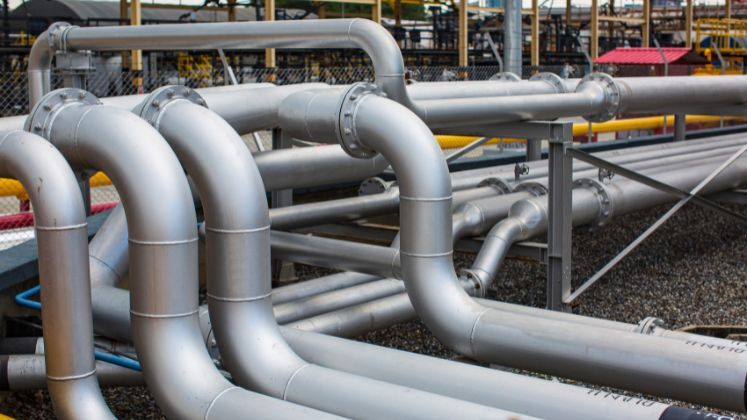A significant increase in gas prices for new industrial users in Bangladesh has raised alarms among business leaders and economists, who warn that it could adversely affect new investments and industrial growth. The Bangladesh Energy Regulatory Commission (BERC) announced a 33 per cent rise in gas tariffs for new industrial and captive users, those generating their own electricity, effective this April.
Under the revised rates, new industrial users will now pay Taka 40 per cubic metre, up from Taka 30, while captive users will face an even steeper increase to Taka 42 from Taka 31.50. The new pricing also applies to companies that use more than 50 per cent of their approved gas capacity or exceed their sanctioned usage.
At a press conference in Dhaka, BERC Chairman Jalal Ahmed stated that the aim of the hike was to promote more efficient energy use and ensure a fair distribution of gas. “We’ve tried to keep things stable for existing users to avoid unnecessary disruption,” he said. “Only new and over-consuming users will be affected.”
The timing of the increase is particularly challenging, as Bangladesh’s industrial sector, especially its export-driven garment industry, grapples with reduced global demand, energy shortages, and supply chain disruptions. Industry insiders fear that the added cost of gas could push some businesses to the brink.
While BERC justified the price hike as necessary to address Petrobangla’s growing revenue gap and rising LNG import costs, many in the industry argue that the regulator has overlooked more pressing issues such as inefficiencies and gas system losses.
“The hike could have been even higher if we strictly followed revenue needs,” admitted BERC Chairman Jalal Ahmed. “We tried to keep it manageable.”
Entrepreneurs have expressed concerns that the decision sends a discouraging message to potential business starters and those considering expansion. Masud Kabir, managing director of Motex Fashion, criticised the move, stating, “The government says it wants to encourage production and entrepreneurship, but this move does the opposite. It’s already tough for new entrepreneurs to get started; this will make it even harder. Production won’t rise; it will drop.”
Kabir also warned that the new rates could encourage dishonest practices among businesses trying to avoid additional charges. “To evade these extra costs, some might manipulate their usage data, leading to a less transparent and more corrupt system.”
Economists have also expressed skepticism regarding the rationale behind charging new users higher rates than existing ones. Dr. Zahid Hussain, a former lead economist at the World Bank’s Dhaka office, described the pricing policy as “unfair and economically flawed.” He stated, “There’s no good reason to treat new businesses differently. It creates an uneven playing field and deters fresh investment. Even with the higher prices, gas supply remains unreliable, with many RMG factories facing regular disruptions.”
The gas price hike appears to align with a broader strategy to reduce energy subsidies, in accordance with recommendations from the IMF. While this may provide short-term financial relief for the government, many worry it could hinder long-term industrial growth and job creation.
Concerns are also growing about the potential for legal challenges to this pricing model due to its perceived discriminatory nature. Ultimately, the implications of this decision extend beyond financial figures, posing serious risks to Bangladesh’s investment climate and industrial future. While the government may gain short-term benefits, the long-term consequences could include fewer new businesses, decreased production, and a more arduous path for industrial growth.







